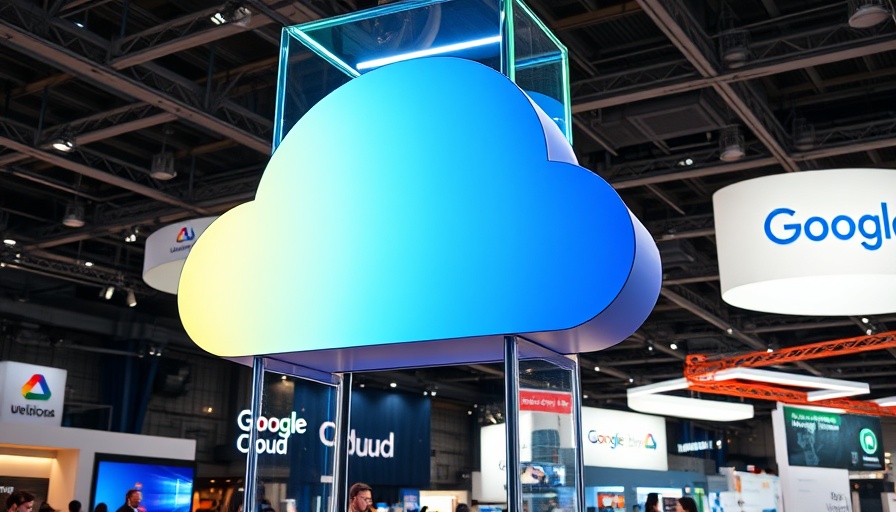
Revolutionizing Healthcare: Google Cloud's New genAI Capabilities
Google Cloud recently made waves at HIMSS25 with the launch of its latest generative AI capabilities in Vertex AI Search for healthcare. These advancements, dubbed Visual Q&A and Gemini 2.0, promise to reshape how healthcare professionals access and interpret patient data, ultimately enhancing the quality of care.
Multimodal AI Capabilities: Transforming Patient Data Access
One of the most significant leaps forward in Google's healthcare technology is the introduction of multimodal capabilities. These innovations allow healthcare providers to access not just textual information, but also visual data—such as tables, charts, and diagrams—directly from images. This feature means that clinicians can intuitively search through complex medical records without losing context, thus painting a clearer picture of a patient's health.
The Importance of Visual Q&A in Medical Diagnostics
Visual Q&A stands out for its ability to process visual input without the need for prior text conversion. For example, it can analyze a diagram of a patient’s feet alongside a checkbox indicating whether the patient is using therapeutic shoes. By understanding the visual context, healthcare providers can quickly identify and grasp essential details that may have previously required tedious cross-referencing of text-based records.
Gemini 2.0: Empowering Medical Techniques through Advanced AI
Gemini 2.0 takes this revolution a step further by integrating deeper analytical capabilities. It can handle vast datasets like MRI images, flagging subtle anomalies that might escape human observation. By generating detailed reports summarizing findings, Gemini 2.0 significantly reduces the time clinicians spend on data analysis, allowing them to focus on patient care.
Building Trust in AI for Healthcare
Amidst these groundbreaking improvements, trust remains paramount in the deployment of AI in healthcare settings. Google Cloud has committed to maintaining high standards of accuracy and transparency. Their protocols involve rigorous testing of AI models and continuous feedback from healthcare professionals to ensure reliable outcomes. Furthermore, strict compliance with HIPAA ensures that patient data is secured and handled ethically.
Implications for Healthcare Providers
The implications of these innovations are profound. With the ability to process diverse patient data sources—textual, visual, and genetic information—clinicians can rapidly generate tailored treatment plans. In a sector where time is often of the essence, these technologies empower providers to make well-informed decisions that directly impact patient outcomes.
Conclusion: Embracing the Future of Healthcare with AI
As healthcare continues to evolve, the integration of advanced AI technologies like Google Cloud’s Vertex AI Search will be crucial in enhancing patient care. By bridging the gap between complex patient data and actionable insights, these innovations represent a vital step forward for healthcare professionals. Stay informed on the latest AI feed and advancements to see how these technologies can benefit society.
 Add Row
Add Row  Add
Add 




 Add Row
Add Row  Add
Add 

Write A Comment